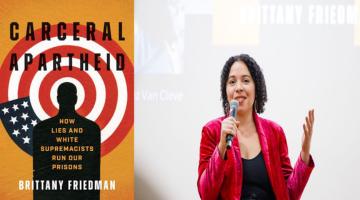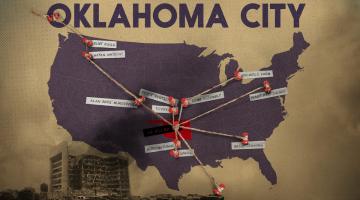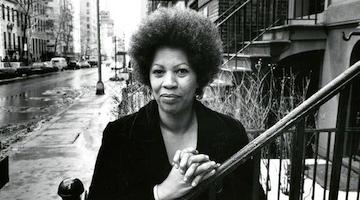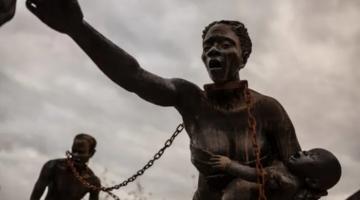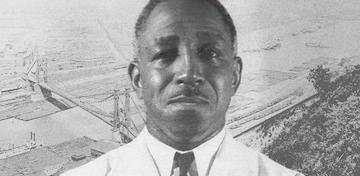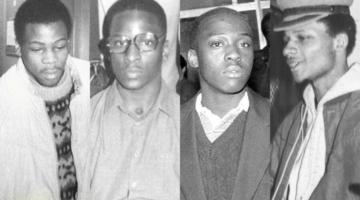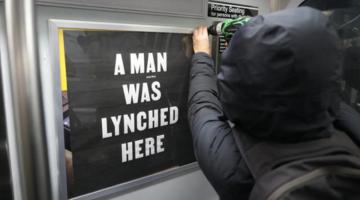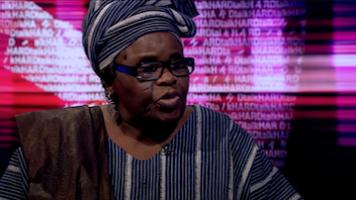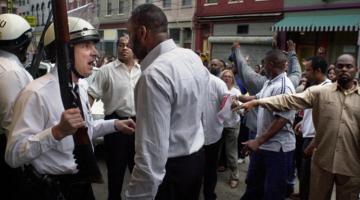Cabrera’s book directly pushes against the notion that White racism only exists within “ignorant” White people or “rednecks” and “hillbillies.”
“Racism on college campuses is even more endemic than originally thought.”
In this series, we ask acclaimed authors to answer five questions about their book. This week’s featured author is Nolan L. Cabrera. Cabrera is an Associate Professor in the Center for the Study of Higher Education at the University of Arizona in Tucson. His book is White Guys on Campus: Racism, White Immunity, and the Myth of "Post-Racial" Higher Education.
Roberto Sirvent: How can your book help BAR readers understand the current political and social climate?
Nolan Cabrera: White Guys on Campus (WGoC) explores the unconscious racist practices of White undergraduate males. It directly pushes against the notion that White racism only exists within “ignorant” White people or “rednecks” and “hillbillies” as many liberal commentators have incorrectly suggested. Instead, racism is very commonplace among this population.
On a different note, this work counters the popular commentaries that says college students, in particular Students of Color, are “overly sensitive” on issues of race. Instead, these narratives demonstrate how their grievances are not only warranted, but the racism on college campuses is even more endemic than originally thought. This is, in large part, because a great deal of anti-racial minority affect occurs behind closed doors in largely White campus enclaves.
Ultimately, it shows that the bulk of White male undergraduates in the analysis believe very strongly in racial myths (e.g., “reverse discrimination”), but they have very little basis for these beliefs. When interrogated, these strong feelings have very little rooting in any empirical reality. This is troubling because it means that a great deal of our contemporary racial problems stem from the racist imagination (e.g., “we’re being invaded by Mexicans”) which then translates into a pragmatic reality (e.g., the 45th being elected).
What do you hope activists and community organizers will take away from reading your book?
I hope that activists, in particular anti-racist activists, find some validation for their work in WGoC. That is, they are continually derided for “inserting race into a situation” or “being racial agitators.” The findings from this text show that their critiques of systemic racism are both correct, and their activism is needed more than ever. I hope that it helps define the contours of the problem by identifying the racist tendencies of White male undergraduates.
I also hope that it helps open the doors for White males to participate in anti-racist activism as co-conspirators in the larger movement. In the concluding chapter, I went into some depth about some specific issues that commonly arise when White men do anti-racist work, and I hope they will take some of these loving critiques to heart when beginning to do this work.
This text is meant to be a form of social agitation in the way W.E.B. DuBois conceived of the term. He argued, “Agitation is a necessary evil to tell of the ills of the suffering. Without it many a nation has been lulled into a false security and preened itself with virtues it did not possess.” I hope that activists can use it in this way – to agitate and disrupt the perceived racial virtues of the US (which it does not actually possess) so that we may create a better racial future.
We know readers will learn a lot from your book, but what do you hope readers will un-learn? In other words, is there a particular ideology you’re hoping to dismantle?
There are a number of ideologies that I would love to see dismantled and hope that WGoC can help address. The first issue is the common misconception that racism is a defect of an individual. We have a tendency in contemporary society to identify people as good (non-racist) and bad (racist). Instead, this text explicitly identifies White supremacy as a structure of racial oppression whereby racist ideas, actions, and thoughts (from the interviewees), are manifestations of this structure. It helps make racial analyses more complex because it means that racism and anti-racism can (and do) exist within the same body.
Additionally, there has been a two-decade-long scholar/activist critique of color-blindness as both ineffective social policy while even arguing that color-blindness is a form of racism in-and-of-itself (see the work of Eduardo Bonilla-Silva). While WGoC supports this argument, it also shows how color-blindness serves as a shield for other racist actions. That is, professions of “I don’t see race” or “race doesn’t matter” gave license to do something racist.
Ultimately, I want WGoC to help correctly identify the issue of racism in contemporary society. All too often, race and racism are seen as “minority problems.” Instead, this work specifically identifies it as a White problem – a White male problem in particular.
Who are the intellectual heroes that inspire your work?
There are too many to count, but here are a few who stand out. First, I have an almost two decade-long engagement with the work of Paulo Freire. I adore the way that he conceptualizes of the nature of oppression and anti-oppressive praxis, but I am also taken by the care with which he offers his views of human nature and humanity. His work is kind of the unholy love child of Karl Marx and Jesus Christ, but that is what makes it so impactful, beautiful, contradictory, and important.
Second, bell hooks has been a guiding light throughout all of this work. Her description of “white supremacist, capitalist, hetero, patriarchy,” as a jumping off point for intersectional analysis is like a radical version of Jiminy Cricket on my shoulder – always reminding me that while I am exploring primarily race and gender that there are also important issues of ability, religion, sexuality, etc. at play in the work. I also continually return to her analyses of love, which offer a wonderful and more in-depth exploration of the issue relative to Freire. In the end, love of radical humanity is what this work is all about.
Finally, I read a lot of James Baldwin while doing this work. His racial analyses are so disturbingly beautiful. The Fire Next Time, in my estimation, is one of the finest texts ever produced by an American author, but it is troubling that Baldwin’s prophetic voice is still relevant today – troubling because it shows how little progress we have made over the past ½ century. However, this is also a testament to how critically important anti-racist work is during our troubled times.
In what way does your book help us imagine new worlds?
I have struggled with this issue for a while, but it is an incredibly important question. Freire consistently argued that radical educators must be guided by a vision of an anti-oppressive future to do the work. I think I was a little too caught up in Chomsky’s Responsibility of the Intellectual while writing this when he argued, “It is the responsibility of intellectuals to speak the truth and expose lies.” I think the text did the latter well (see the response to Q3), but it did the former poorly.
That said, by deconstructing White male racism, we have the opportunity to envision and reconstruct an anti-racist future.
What could that look like? What should it look like? I am not sure that my work directly speaks to it, but the work of others who inspired the work do. First, any truly liberatory work must be intersectional in nature. If bell hooks is correct that all structures of oppression both have unique features and are mutually-reinforcing, then one cannot truly do anti-racist work in a patriarchal or homophobic fashion. That falls into the trap that Freire cautions against when he argues, “It is imperative that the oppressed do not therefore become the oppressors.”
In the larger public sphere, this means conceiving of multipronged, loosely connected, anti-oppressive coalition that would see liberation as a process engaged as opposed to an end met. However, this vision means nothing (and can inadvertently produce fatalism) if there is not a dedicated collective working to make this dream a reality.
Roberto Sirvent is Professor of Political and Social Ethics at Hope International University in Fullerton, CA. He also serves as the Outreach and Mentoring Coordinator for the Political Theology Network. He is co-author, with fellow BAR contributor Danny Haiphong, of the new book, American Exceptionalism and American Innocence: A People’s History of Fake News—From the Revolutionary War to the War on Terror.
COMMENTS?
Please join the conversation on Black Agenda Report's Facebook page at http://facebook.com/blackagendareport
Or, you can comment by emailing us at comments@blackagendareport.com

